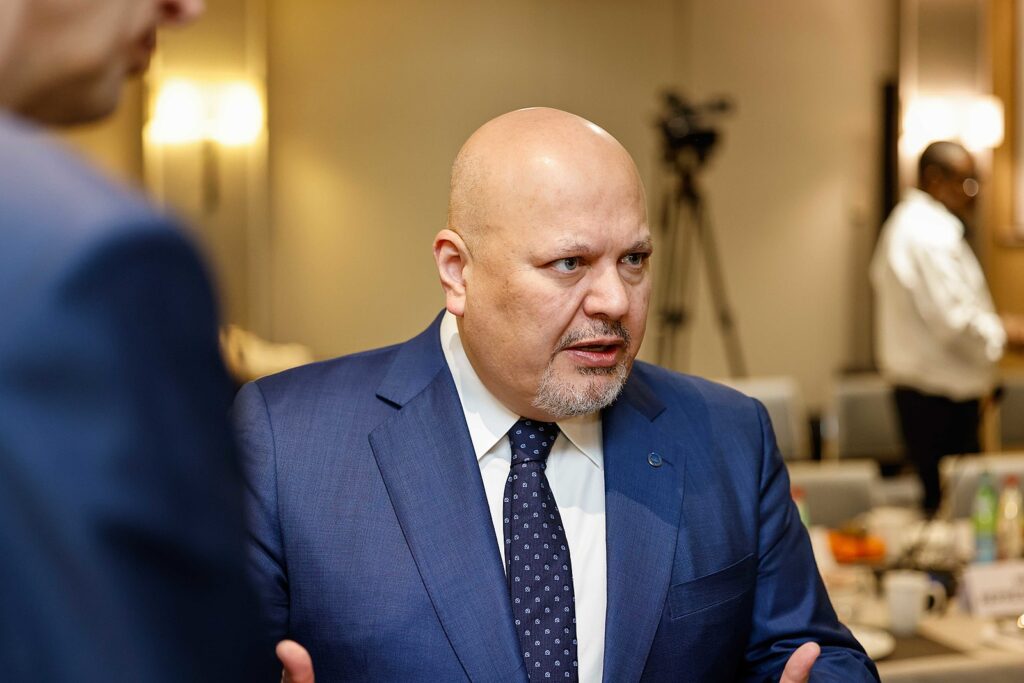IN THE MEDIA
Why ICC’s ingrained bias ensures no fair ‘trials’ for Israel
May 24, 2024 | Greg Rose

The Australian – 24 May 2024
The request for an arrest warrant against Benjamin Netanyahu and his Defence Minister, made by the International Criminal Court’s chief prosecutor, is unsurprising, but not for the reasons many might think.
An integral purpose of the ICC’s political project has always been to delegitimise Israel. A target was drawn on Israel in the 1990s during the drafting of the Rome Statute for the ICC. The Organisation for Islamic Cooperation made this a condition of participation by Muslim countries. With 57 members, the OIC is the world’s biggest organisation by membership (other than the UN itself). Its participation was necessary for the global criminal law project to proceed.
The OIC required that the ICC definition of forced transfer of civilian populations be expanded as a war crime. New language introduced into the Rome Statute criminalised voluntary civilian migration of Jews into the areas of Jerusalem, Judea and Samaria now called the West Bank. Although the ICC statute codified other existing war crimes, this became a new retrospective war crime invented in the Rome Statute.
This crime of allowing Jews to live voluntarily in the West Bank and Jerusalem has been under examination in the ICC since 2014. The previous chief prosecutor, in close liaison with Palestinian bodies and advisers from the OIC, geared the examination up to a prosecutorial investigation in 2020.
The ICC is an effective tool to delegitimise Israel only if actively used by ICC staff. This brings into focus the role and politics of its chief prosecutors. Karim Khan, the current chief prosecutor, had as his mentor and godfather Sir Muhammad Zafarullah Khan, Pakistan’s first foreign minister, who opposed the Jewish state’s establishment and existence throughout his career, including during his presidency of the UN General Assembly. They corresponded every week and stayed together when the elder Khan was in Britain. Khan describes the elder Khan’s influence as pivotal.
The previous chief prosecutor, Fatou Bensouda, had been legal adviser and attorney-general in her home country, Gabon, under the dictatorship of Yahyah Jammeh, overseeing disappearances, political prosecutions and torture. Questionable dealings ran in the family, with her husband a bulk oil dealer in North Africa and her son a drug trafficker in the US.
Like dodgy police setting up false evidence for prosecution of a trafficker fallen from their favour, the ICC prosecutors set up dubious charges against Israel. These are based largely on evidence assembled by anti-Israel NGOs who solicit Palestinian testimony that is partial and prejudicial. The prosecutors then put forward questionable interpretations of international law rules that novelly apply only to Israel.
For instance, a charge issued by Khan focused on alleging insufficient aid flows into Gaza, arguing this amounts to the war crime of using starvation as a weapon of war. But the ICC prosecutor ignored several of the most salient facts, such as Hamas attacks on border crossings (thus interrupting aid flows), Hamas’s seizure of aid convoys and stealing of aid, and its booby-trapping homes and its destruction of Gaza infrastructure, particularly water pipelines and electricity transmission lines.
Khan contradicts the basic rules of international law of armed conflict allowing attacks on combatants by treating Hamas combatants embedded in urban areas as civilians. He also invents a perverse rule requiring the direct provision of humanitarian aid to the enemy in armed conflict.
The networks of such prejudicial influence extend well beyond the ICC into other legal institutions. Sir Muhammad Zafarullah Khan was also a president of the UN International Court of Justice, just like the current president of the ICJ, Nawaf Salam. Judge Salam was the Lebanese ambassador to the UN, where he was well known for constant invective against Israel. Unsurprisingly, he is not withdrawing or recusing himself in the current cases against Israel.
Egyptian and Jordanian judges in the ICJ were similarly pleased to execute judgments against Israel, despite their obvious bias from previous high-level national political roles.
Although a principle of the rule of law is that of the impartial judge, for which the disqualifying threshold is a reasonable apprehension of bias, this fundamental rule has no traction in the international justice system.ICC prosecutor Khan pretends Israel must be held to account equally with others. But the problem is not a failure to hold Israel to account, it is a more fundamental failure to treat Israel equally under law. Just as Jews were once excluded from polite society, and subjected to double standards, today Israel is treated as the Jew of the nations to be excluded from international society.
The international legal system is politicised. It is a function of the UN, which in turn is a political institution dominated by non-democratic states. They drive forward their own narrow anti-Semitic interests with the cynical support of hypocrites. Of course, the ICC charges are no surprise.
Greg Rose is a professor of law at the University of Wollongong, a senior fellow of The Hague Initiative for International Cooperation and a visiting fellow at AIJAC.
Tags: Fatou Bensouda, ICC, ICJ, Karim Khan, Nawaf Salam, Netanyahu, OIC, Pakistan, Palestinians, Rome Statute, genocide





